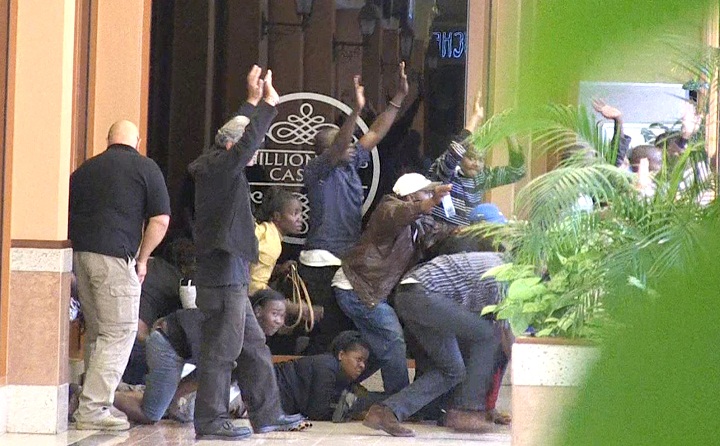VANCOUVER – Kenya’s president has urged foreign governments not to issue travel warnings to his country following Saturday’s attack on a Nairobi shopping mall, where at least 68 people were killed.

Somalia-based militant group al-Shabab has claimed responsibility for the attack at Nairobi’s Westgate Mall — the group’s worst assault on Kenyan soil since bombings at two churches in the city of Garissa killed 17 people on July 1, 2012.
The Westgate Mall remains under siege as gunman armed with grenades hold an unknown number of people captive.
The shopping centre is known to be frequented by foreigners and is in an upscale area close to a number of embassies, banks and foreign businesses.
Among those confirmed dead are two Canadians — including 29-year-old diplomat Annemarie Desloges — two French citizens, three British citizens, one American, one Dutch citizen, one Chinese citizen, a South African, Ghanaian poet and former UN ambassador Kofi Awoonor and two Indians, including an 8-year-old child.
At this point, Canada’s Dept. of Foreign Affairs (DFAIT) has only issued an advisory for Canadian’s to “exercise a high degree of caution.”
“Remain highly vigilant and avoid public places in the next 24 – 48 hours,” DFAIT posted on its website Sunday.
- 16-year-old child of billionaire tech CEO reported missing
- U.S. tourist faces 12-year sentence for bringing ammo to Turks and Caicos
- Canada refused to repatriate woman from ISIS camp because she can’t be arrested: internal memo
- Bombardier, Airbus get exemptions from Canadian sanctions on Russian titanium
Canada does not currently have any nationwide travel warnings for Kenya, although it does have two pre-existing travel advisories for areas heavily populated by Somalis — one of which is a district of Nairobi.
DFAIT warns against “non-essential travel” to the Eastleigh neighbourhood of the Kenyan capital, about eight kilometres away from Westgate Mall.
The area is often referred to as “Little Mogadishu” and it’s estimated 250,000 Somali immigrants, refugees and their descendants live in the neighbourhood.
Reuters reported Sunday there were fears in that community there could be retaliatory attacks because of the Westgate Mall siege.
In November last year, angry mobs attacked shops and businesses in Little Mogadishu after a minibus bombing, blamed on al-Shabab killed nine people. A month later five people died when a grenade went off near an Eastleigh mosque.
DFAIT has also advised Canadians against travel to areas within 150 kilometres of the border with Somalia, citing “a risk of kidnappings and attacks for issuing the advisory.”
That advisory covers areas in Northeasten Province, including Garissa County -where the church attacks occurred — and the Lamu district north of Pate Island.
Garissa County is also home to the Dadaab refugee camp — the largest refugee camp in the world, according to UNHCR.
The 21-year-old camp, made up of five settlement camps, is populated with nearly 386,000 Somali refugees who have fled violence and famine in Somalia.
The 2012 church attacks that took place about 120 kilometres from Dadaab happened on the same day as four aid workers, including one from Canada, were released after three days in captivity.
Several foreign tourists and aid workers have been kidnapped in the northeastern region of the country since 2011, when Kenya became involved in a multinational operation to help the Somali military combat Al-Shabab.
Kenya officially joined the African Union Mission in Somalia in June 2012 and most notably sent troops into Somalia in September of that year to help the Somali military force Al-Shabab out of the coastal city of Kismayo.
Messages posted to a Twitter account believed to belong to al-Shabab indicated the Westgate Mall attack was part of a greater retaliation for Kenya’s interference in the conflict between the Somali government and the militant group.
“The attack at #WestgateMall is just a very tiny fraction of what Muslims in Somalia experience at the hands of Kenyan invaders,” one Tweet read.
“For long we have waged war against the Kenyans in our land, now it’s time to shift the battleground and take the war to their land #Westgate,” said another message posted before the account was suspended.
-With files form The Associated Press




Comments